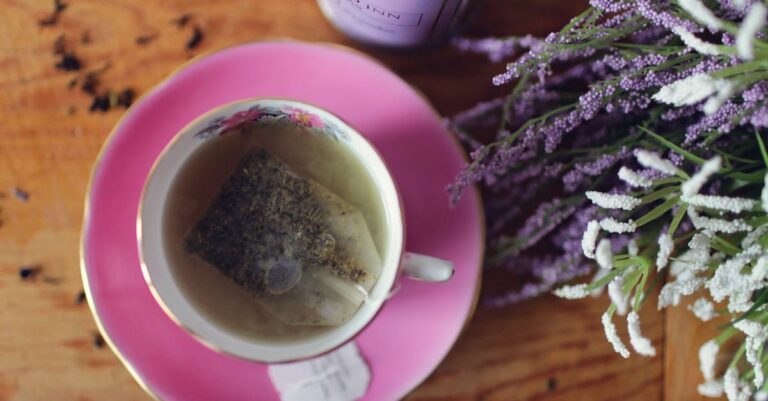Introduction
What is Vitamin D3?
Vitamin D3 is a crucial nutrient that plays a significant role in maintaining overall health and well-being. It is a form of vitamin D that is produced in the skin when exposed to sunlight. Vitamin D3 is also found in certain foods, such as fatty fish, fortified dairy products, and egg yolks. This essential vitamin is known for its role in promoting bone health, as it helps the body absorb calcium and phosphorus. Additionally, vitamin D3 has been linked to various other benefits, including immune system support, mood regulation, and prevention of certain chronic diseases. However, it is important to note that excessive intake of vitamin D3 supplements can potentially lead to adverse effects, such as nausea, vomiting, and even anxiety. Therefore, it is recommended to consult with a healthcare professional before starting any vitamin D3 supplementation regimen.
What is Anxiety?
Anxiety is a common mental health condition characterized by feelings of worry, fear, and unease. It can manifest in various ways, such as excessive sweating, rapid heartbeat, and difficulty concentrating. People with anxiety may experience irrational thoughts and may avoid certain situations or activities due to their fear and apprehension. While the exact causes of anxiety are not fully understood, factors such as genetics, brain chemistry, and traumatic life events can contribute to its development. It is important to note that anxiety is a treatable condition, and there are various interventions and therapies available to help individuals manage their symptoms and improve their quality of life.
Link between Vitamin D3 and Anxiety
There is a growing body of research exploring the link between vitamin D3 and anxiety. Several studies have suggested that there may be a connection between low levels of vitamin D3 and an increased risk of developing anxiety disorders. Vitamin D3, also known as the sunshine vitamin, plays a crucial role in regulating mood and brain function. It is involved in the production of serotonin, a neurotransmitter that helps regulate mood. Additionally, vitamin D3 has anti-inflammatory properties that may help reduce anxiety symptoms. However, more research is needed to fully understand the relationship between vitamin D3 and anxiety. In the meantime, maintaining adequate levels of vitamin D3 through sun exposure or supplements may be beneficial for individuals experiencing anxiety symptoms.
Effects of Vitamin D3 on Anxiety

Research Studies
Research studies have explored the relationship between vitamin D3 and anxiety. One question that has been raised is whether vitamin D3 can cause anxiety. While there is limited research on this specific topic, some studies suggest a potential link between vitamin D3 deficiency and symptoms of anxiety. However, more research is needed to fully understand the connection. It is important to note that anxiety can have various causes, and vitamin D3 is just one factor that may play a role. If you are experiencing anxiety, it is recommended to consult with a healthcare professional to determine the underlying causes and appropriate treatment options.
Mechanism of Action
Vitamin D3, also known as cholecalciferol, is a crucial nutrient that plays a significant role in the body’s overall health. It is primarily synthesized in the skin upon exposure to sunlight and can also be obtained through certain dietary sources. The mechanism of action of vitamin D3 involves its conversion into its active form, calcitriol, which then binds to specific receptors in various tissues, including the brain. This binding triggers a cascade of events that regulate gene expression, calcium absorption, and immune function. The role of vitamin D3 in anxiety is still being studied, but it is believed to have an impact on neurotransmitters and neuroplasticity, which can influence mood and anxiety levels. While more research is needed to fully understand the relationship between vitamin D3 and anxiety, incorporating natural medicine series into your daily routine may provide potential benefits for overall well-being.
Recommended Dosage
Vitamin D3 is an essential nutrient that plays a crucial role in maintaining overall health. It is primarily known for its role in promoting strong bones and teeth by aiding in the absorption of calcium and phosphorus. However, there has been some speculation about whether vitamin D3 can cause anxiety. While there is no direct evidence linking vitamin D3 to anxiety, it is important to note that vitamin D3 deficiency has been associated with mood disorders. Therefore, it is recommended to maintain optimal vitamin D3 levels through appropriate supplementation and sun exposure. It is always advisable to consult with a healthcare professional to determine the recommended dosage of vitamin D3 based on individual needs and circumstances.
Other Benefits of Vitamin D3

Bone Health
Vitamin D3 plays a crucial role in maintaining bone health. It helps the body absorb calcium, which is essential for strong and healthy bones. Adequate levels of vitamin D3 can prevent conditions like osteoporosis and reduce the risk of fractures. However, there is no evidence to suggest that vitamin D3 causes anxiety. In fact, some studies have shown that vitamin D3 may have a positive effect on mental health. It is always important to consult with a healthcare professional before making any changes to your vitamin D3 intake.
Immune System Support
Vitamin D3 is a crucial nutrient that plays a significant role in various bodily functions. One area where it has shown promise is in supporting the immune system. Research suggests that vitamin D3 can help regulate the immune response and enhance its ability to fight off infections. Additionally, studies have indicated that vitamin D3 deficiency may be linked to an increased risk of developing certain autoimmune disorders. It is important to note that while vitamin D3 can provide immune system support, it is not a cure for any specific condition. It is always recommended to consult with a healthcare professional before starting any new supplement regimen. Hormonal imbalance is another factor that can impact the immune system. Maintaining hormonal balance is essential for overall health and well-being. If you suspect a hormonal imbalance, it is advisable to seek medical advice to address the underlying causes and explore potential treatment options.
Mood Regulation
Vitamin D3 is an essential nutrient that plays a crucial role in numerous bodily functions. One area where it has been extensively studied is its impact on mood regulation. Research suggests that vitamin D3 deficiency may be linked to an increased risk of developing anxiety. However, it is important to note that the relationship between vitamin D3 and anxiety is complex and still not fully understood. While some studies have found a correlation between low vitamin D3 levels and symptoms of anxiety, others have produced conflicting results. It is also worth noting that vitamin D3 supplementation has been shown to improve mood in individuals with deficiency, but its effects on anxiety specifically are still being investigated. Therefore, it is recommended to consult with a healthcare professional if you are experiencing anxiety symptoms or have concerns about your vitamin D3 levels. Additionally, it is important to address other potential causes of anxiety, such as stress, lifestyle factors, and underlying medical conditions.
Sources of Vitamin D3

Sunlight
Vitamin D3 is an essential nutrient that plays a crucial role in maintaining overall health. It is primarily obtained through exposure to sunlight, which triggers the synthesis of vitamin D3 in the skin. Sunlight is the most natural and abundant source of vitamin D3, and it is necessary for the body to produce and regulate this important vitamin. However, while sunlight is beneficial for vitamin D3 production, it is important to note that excessive exposure to sunlight can also have negative effects on the skin, such as sunburn and an increased risk of skin cancer. Therefore, it is important to strike a balance between getting enough sunlight for vitamin D3 synthesis and protecting the skin from harmful UV rays.
Dietary Sources
Vitamin D3 is an essential nutrient that plays a crucial role in maintaining overall health and well-being. While it is commonly known for its role in promoting bone health, recent studies have also suggested a potential link between vitamin D3 and anxiety. Research indicates that vitamin D3 deficiency may be associated with an increased risk of developing anxiety disorders. However, it is important to note that the relationship between vitamin D3 and anxiety is complex and further research is needed to fully understand the mechanisms involved. In the meantime, it is recommended to ensure an adequate intake of vitamin D3 through dietary sources.
Supplements
Vitamin D3 is a commonly used supplement in alternative medicine. It is often taken to improve overall health and well-being. However, there is some debate about whether vitamin D3 can cause anxiety. While there is limited scientific evidence to support this claim, some individuals have reported experiencing increased anxiety after taking vitamin D3 supplements. It is important to note that everyone’s reaction to supplements can vary, and what works for one person may not work for another. If you are considering taking vitamin D3 or any other supplement, it is always best to consult with a healthcare professional to determine what is best for your individual needs.
Precautions and Side Effects

Possible Side Effects
Vitamin D3 is a crucial nutrient that plays a vital role in maintaining overall health and well-being. While it is generally safe for most people, there have been some reports suggesting a possible link between vitamin D3 and anxiety. However, it is important to note that the evidence is limited and more research is needed to establish a definitive connection. It is always recommended to consult with a healthcare professional before making any changes to your supplement regimen. When it comes to possible side effects of vitamin D3, it is important to be aware of any potential interactions with other medications or underlying medical conditions. It is also worth noting that excessive intake of vitamin D3 can lead to toxicity, which may cause symptoms such as nausea, vomiting, and weakness. Therefore, it is crucial to follow the recommended dosage guidelines and seek medical advice if you experience any adverse effects.
Interactions with Medications
Vitamin D3 is a crucial nutrient that plays a vital role in maintaining overall health and well-being. It is often recommended as a supplement to support bone health, immune function, and mood regulation. However, there have been concerns about the potential interactions between vitamin D3 and certain medications. It is important to be aware of these interactions to ensure the safe and effective use of both the medications and vitamin D3. One such interaction is with essential detox medications. Essential detox medications are commonly used to support the body’s natural detoxification processes. While there is limited research on the specific interaction between vitamin D3 and essential detox medications, it is advisable to consult with a healthcare professional before combining these two substances. This precautionary measure can help prevent any potential adverse effects and ensure the optimal benefits of both vitamin D3 and essential detox medications.
Consulting a Healthcare Professional
If you are experiencing anxiety symptoms and suspect that vitamin D3 might be the cause, it is important to consult a healthcare professional. They can assess your symptoms, review your medical history, and conduct any necessary tests to determine the underlying cause of your anxiety. A healthcare professional will be able to provide you with personalized advice and guidance on managing your anxiety and addressing any potential vitamin D3 deficiency. It is important to remember that self-diagnosis and self-treatment can be risky, and seeking professional help is the best approach to ensure proper diagnosis and treatment.
FAQ (Frequently Asked Questions)

Can Vitamin D3 Cause Anxiety?
Vitamin D3 is an essential nutrient that plays a crucial role in maintaining overall health. However, there have been concerns about whether vitamin D3 can cause anxiety. It is important to note that there is no direct evidence linking vitamin D3 to anxiety. In fact, several studies have suggested that vitamin D3 may have a positive impact on mental health. One study found that low levels of vitamin D3 were associated with an increased risk of depression and anxiety disorders. Another study showed that vitamin D3 supplementation improved symptoms of anxiety in individuals with deficiency. While more research is needed to fully understand the relationship between vitamin D3 and anxiety, it is clear that maintaining adequate levels of this nutrient is important for overall well-being. If you are concerned about anxiety, it is always best to consult with a healthcare professional who can provide personalized advice and guidance.
How Long Does It Take for Vitamin D3 to Work?
Vitamin D3 is a crucial nutrient that plays a significant role in various bodily functions. It is well-known for its ability to support bone health, boost the immune system, and regulate mood. However, there has been some speculation about whether vitamin D3 can cause anxiety. While research on this topic is limited, some studies suggest that vitamin D3 deficiency may be linked to an increased risk of anxiety disorders. It is important to note that more research is needed to fully understand the relationship between vitamin D3 and anxiety. If you are concerned about your vitamin D3 levels and their impact on anxiety, it is recommended to consult with a healthcare professional who can provide personalized advice and guidance.
Can I Take Vitamin D3 with Other Supplements?
Vitamin D3 is a vital nutrient that plays a crucial role in maintaining overall health and well-being. It is known for its numerous benefits, including supporting bone health, boosting the immune system, and promoting proper brain function. However, there have been concerns about whether vitamin D3 can cause anxiety. While there is limited scientific evidence linking vitamin D3 to anxiety, it is important to note that everyone’s body is unique and may react differently to supplements. If you are considering taking vitamin D3 with other supplements, it is always recommended to consult with a healthcare professional. They can provide personalized advice based on your specific needs and medical history. By following their guidance, you can ensure that you are taking the supplements in a safe and effective manner.





















































